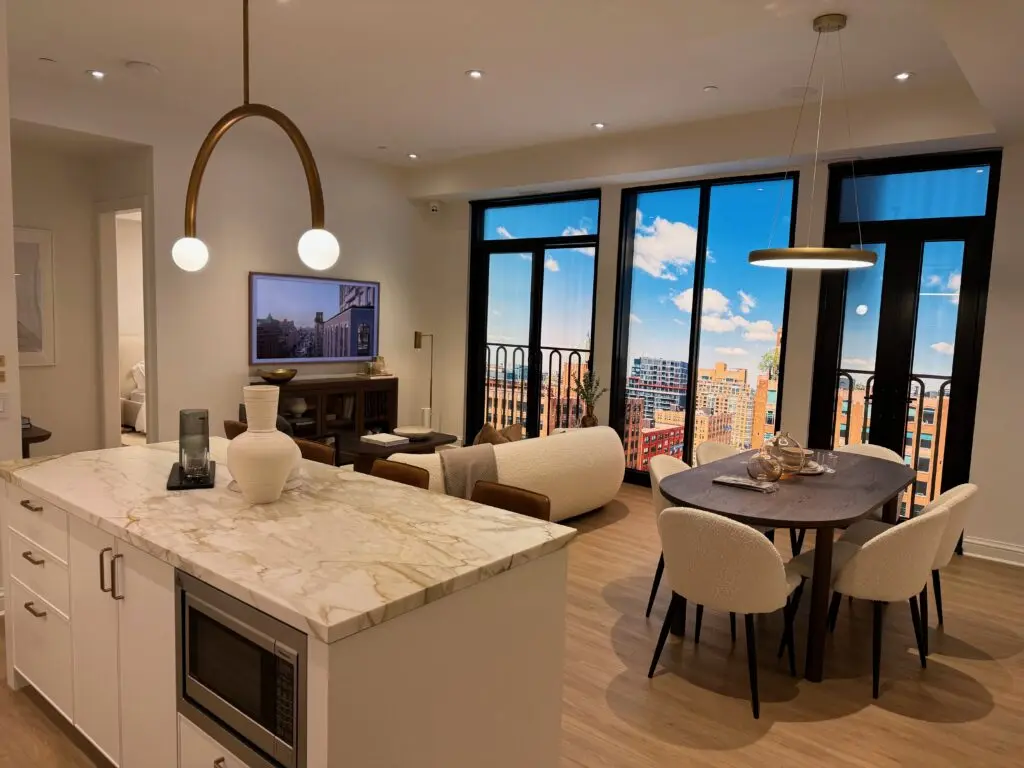The latest episode of the Livabl Launch Podcast features an insightful interview with Pouyan Safapour, president and co-founder of Devron Developments.
Pouyan takes an intentional, responsible and selective approach to building, and has made it his life’s mission to ensure that Torontonians love the homes they live in. Devron’s portfolio includes impressive Toronto and GTA projects such as The Winslow, 1140 Yonge and the upcoming 101 Spadina.
Join host Matthew Slutsky as he sits down with Pouyan to discuss the often-criticized system of selling on a promise rather than a product, what that means for buyers and developers, and how it impacts the integrity and future of the industry.
Here are some highlights from the episode:
On Devron’s values as a builder:
“The average person the city doesn’t love condos. The word ‘condos’ doesn’t inspire a feeling of aspiration and happiness and excitement and pride. Whether it was a neighbour when a condo was coming up, whether it was a person living in a condo – the word has not become synonymous with something that people love. And we just decided this can’t be. This can’t be it. So that’s the inception of who we are as a company and what we stand for. That’s what we’ve tried to do, essentially, from our second project and forward.”
On negative perceptions about condos in Toronto:
“When it comes to housing, I feel like we’ve been on the wrong path. We’ve been on a bad path. We have this amazing city. Lots of people from across the world are coming here. And we know already at this point that the best solution, the most sustainable – not only just environmentally – solution for housing is multifamily. Living and investing in multifamily. Yet we have one of the worst perceptions of living in multifamily.”
“We have people who want to come here and want to live here. But the main form of housing we’re building, they don’t want to live in. And the reason is because we’re not creating the right kind of multifamily housing for them. So that became our purpose and passion of how we build. How do we build multifamily homes in a way that they are loved, appreciated, and they’re lived in long-term by people in the same way they think about any other kind of home.”
On Toronto’s unique culture of pre-selling in the condo market:
“Forty to fifty years ago, when there were no condos in Toronto, and it wasn’t a thing to build condos, the banks were conservative, which made sense. And they said, ‘You know what, developers, if you want to build buildings, just go ahead and sell most of it first, so we can make sure there’s actually a market for these things. And then we’ll lend you the money to build.’ And that makes a lot of sense for us as a beta test for a new kind of housing form in Canada, but the problem is we never evolved that criteria.”
On the investor vs. end user debate:
“Imagine any other industry other than ours, where they said, ‘You know, what, we’re going to design these cars, should we design for the end user? Or should we design for investors?’ Can you imagine how wild of a question that would be? There’s no other product or service where we sit down and debate whether to cater to the end user. It’s like Business 101, that any business that’s very good at understanding its end user and catering a product or service to it, that business succeeds. And vice versa.”
“So, this is one of those red flags. The fact that we’re having these conversations, or having these debates, even for a short period of time is a very big problem. Because most of the time, there’s not a debate. […] There are very few times where people say in this industry, ‘Let’s do an end user project.’ The word ‘end user’ usually strikes fear in the hearts of developers, for the most part, because they feel like it comes with all sorts of like challenges.”
“That’s kind of the myth to dispel, is that there’s no difference between the objectives of an end user and investor. […] It’s very misinformed and a misled way of thinking to think that the goals of investment when buying a condo should be different than the goals of end users. If you’re investing in buying a condo, you should care even more than the developer about the end user. Because what’s happening is you are buying something, and how much it’s desired by the end user is going to determine whether you’ve made a good investment or not.”
For more information on the Livabl Launch podcast, or to listen to previous episodes, visit Livabl Launch on Podbean.







